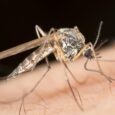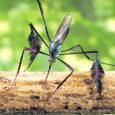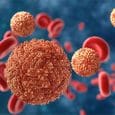Biting insects, like mosquitoes, can be very annoying and irritating. They can ruin your barbecue, beach time, pool parties, hikes, or camping trips in just a snap. When they prey on you or your pets, they tend to leave you inflamed, itching, and depressed because of the scars that form. When you get bitten, it is important for you to know what kind of first aid you should perform on yourself or your loved one. Also, you need to get to know the insects that regularly cross your path, so that you don’t guess what kind of treatment you should give.
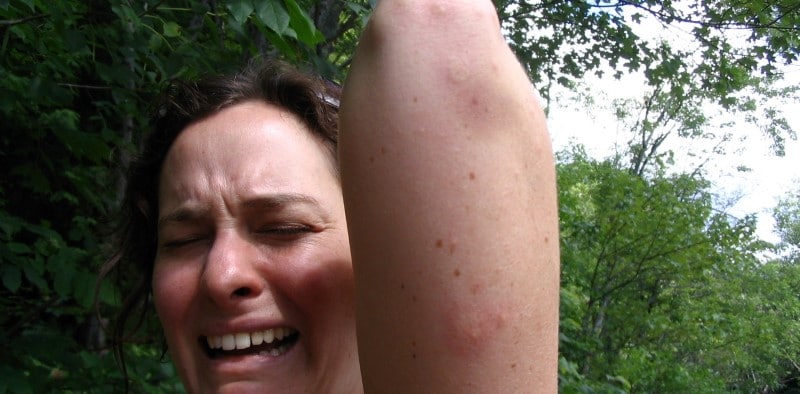
Insect Bite Facts
Biting insects are found everywhere. Mosquitoes and ticks usually stay where humans and animals live. Below are some facts that you need to know about insects that bite:
- Insects are classified as arthropods. They live mainly on land and they have only three pairs of legs. They are the most numerous of all arthropods and they dominate the terrestrial habitats. The class of insects make up three-fourths of the animal population. They are estimated to be at least 10 M.
- Take note that bites and stings are common. They usually cause swelling and redness in the bite area. Sometimes, bites or stings from insects can lead to the transmission of pathogens or a dangerous allergic reaction.
- These are the orders if insects that have the most number of species:
- Lepidoptera (the moths and butterflies)
- Coleoptera (the beetles)
- Diptera (the true flies)
- Hymenoptera (the wasps, ants, and bees)
- After a bee stings you, it loses its stinger or injection tool. Then, it dies.
- Fire ants deliver their venom using through their mandibles. They reinforce it when they rotate their bodies. They may also inject their venom several times
- Megalopyge opercularis (asp) or puss caterpillars actually have hollow spines or hairs (setae) that commonly break when they are touched. That is when the toxin is delivered into your skin.
- A wasp inflicts multiple stings because it keeps its stinger after it injects its venom.
- Remember that mosquito bites are not defensive bites. Female mosquitoes constantly look for blood because they need blood to nourish their eggs.
- Mosquitoes are not dangerous unless they cause allergies or transmit pathogens such as the following:
- West Nile Virus
- Malaria
- Zika
- Yellow fever
- Equine encephalitis
- Dengue fever
- Other insects that deliver diseases to humans and animals are:
- The sand fly that carries the Leishmania protozoa, which causes leishmaniasis
- Lice that carry spirochetes (type of bacteria), which transmit relapsing fever.
- Ticks transmit diseases such as Lyme disease. They bite to have a blood meal.
- Tsetse flies carry protozoan trypanosomes, which cause sleeping sickness and diseases in cattle
- Mites, chiggers, and bedbugs cause self-limiting and localized itching and swelling
- Deer flies carry the bacteria, which causes tularemia
- Lice cause typhus rickettsia
- Fleas cause the bubonic plague
- Though they are not insects, spiders (brown recluse spiders or black widow) can give serious bites. They usually bite to defend themselves.
- Ordinary houseflies can transmit pathogens such as Salmonella sp. through contact. They can land on unsanitary surfaces or items such as feces and then land on food, utensils, and water, delivering bacillary, amoebic dysentery, and typhoid.
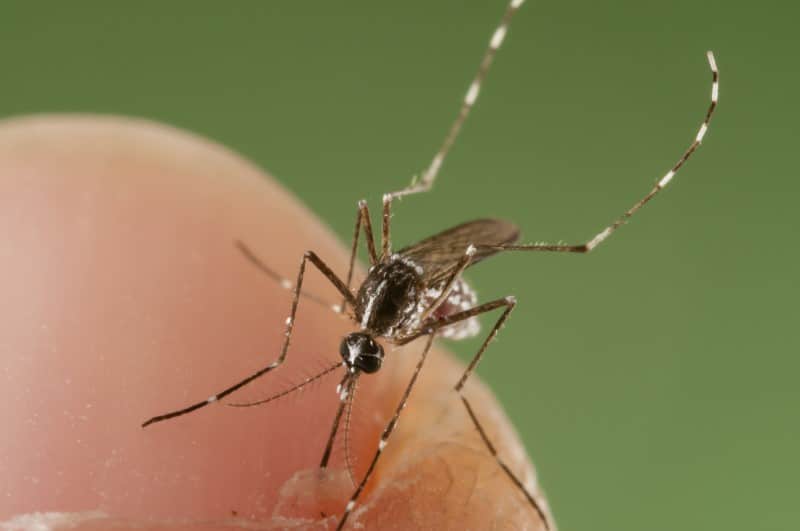
What Causes Insect Bites?
Unless provoked, insects do not really attack humans. Most of the stings and bites are defensive in nature. Insects usually sting or bite to protect their nests or hives. They also defend themselves when they are incidentally disturbed and touched. That is why nests and hives should not be approached or disturbed at all.
A bite or a sting injects venom that is made up of substances such as proteins that can trigger an allergic reaction. The bite or sting can also cause swelling and redness at the affected area. Fire ants, wasps, yellow jackets, bees, and hornets belong to Hymenoptera. Stings or bites from these insects may bring about serious allergic reactions. There are more deaths from bee stings than from snake bites. The biting insects differ in how they injure.
Symptoms of Insect Bites
It is common for insect bites or stings to result in the following:
- Blisters
- Pain
- Redness
- Swelling
- Itching
- It is true that your skin may end up being broken and then infected. It must be treated properly because these localized infections may worsen, leading to cellulitis. You may experience a severe allergic reaction beyond the bite area. This reaction is known as anaphylaxis. Symptoms of anaphylaxis are wheezing, hives, shortness of breath, loss of consciousness, and death in half an hour.
- Multiple stings from bees or hornets are known to breakdown muscles and cause death and kidney failure.
- When fire ants bite, they produce pimple like sores and pustules, which are very painful and itchy.
- A brown recluse spider bite brings about necrotic skin and blisters
- A black widow spider bite causes nausea, chest pain, vomiting, respiratory problems, and abdominal pain.
- Bites from ants usually result in small blister clusters or a single pustule. The center of their bites is usually filled with pus.
- Tick bites can bring about an allergic reaction to milk and red meat (venison, pork, beef)
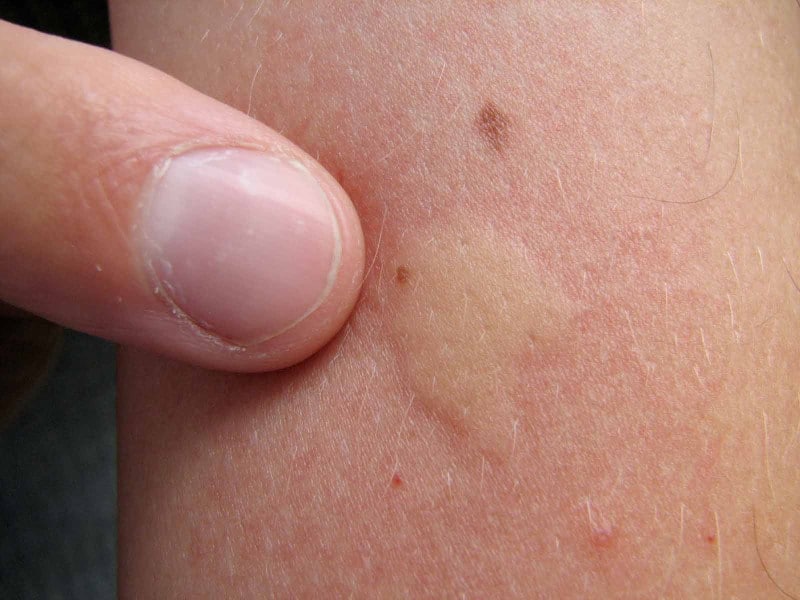
Seeking Medical Attention for an Insect Bite
- Hives from an insect bite are usually the most common symptom. Their appearance is classified as a systemic symptom. Hives are raised, very itchy, red, irregular and blotchy. If they are the only worrisome symptoms, they can be treated with OTC antihistamines. Yet if other symptoms such as shortness of breath arises, you need to call 911. Other symptoms that signal you to seek medical attention are:
- Allergy symptoms which may lead to anaphylactic shock. The symptoms are the following:
- Shortness of breath
- Wheezing
- Difficulty in swallowing
- Chest tightness
- Infection
- Weakness
- If the bite is infected and you experience red streaks on the skin, redness with pus, redness without pus, fever, or warmth.
- If there is an open ulcer, which suggests a venomous spider bite
Identifying Insect Bites
The following are basic descriptions of insect bites, specific to every insect you may encounter:
- Fly Bite. Bites from a tsetse fly produce painful, red bumps. Sand fly bites produce painful red blisters ad bumps. Deer flies have sharp mouth parts that cut through your skin and then drink the blood that comes out.
- Mosquito Bite. The bump produced is puffy and round. It appears right after the bite and soon becomes swollen, hard, and red. You may have several bites in one area of your skin.
- Chigger Bite. Chigger bites appear as hives, welts, blisters, or pimples They are very itchy and they appear in clusters. Chiggers like to target areas of your body where there are skin folds. They also like the skin where clothes tend to fit very tightly.
- Flea Bite. These bites are situated on the feet and lower legs. They are red bumps that are itchy with red halos around them. These symptoms appear as soon as you are bitten.
- Tick Bite. Ticks usually attach themselves to your skin for a while. The bites are rarely seen in groups. There is swelling and pain in the bite area. Blisters, rashes, burning sensation, and difficulty in breathing usually happen after the bite.
- Fire Ant Bite. Fire ant bites appear in clusters. Each bite is represented by a red, swollen spot with a blister on top. The stings from fire ants itch and hurt for a week.
- Lice Bite. Bites from lice result in extreme itchiness of the scalp.
- Bed Bug Bite. A bite from a bed bug is swollen and red, with a dark red center. Hives or blisters appear at the affected area. Bed bug bites may be appear in groups or in a line.
- Scabies bite. Bites of scabies mites have flesh tones lines and are raised. They are made up of tiny groups of blisters, which make up the pimply or scaly rash. The symptoms usually take 4-6 weeks to manifest.

First Aid for Mosquito and Insect Bites
Insect bites occur every day. You must know what to do to the moment you feel something bite you to prevent further infections or worsening of reactions:
1.Basic First Aid. Take note that most insect stings and bites are mild. They usually cause just a bit more itchiness, redness, minor swelling, or stinging. It is rare for stings or bites from insects to result in severe allergic reactions.
For mild reactions:
- Move to another area to avoid more bites or stings.
- Keep calm and quiet because if you keep moving the venom will circulate faster through your bloodstream.
- Detach the stinger, if it is required.
- Wash the affected area with clean water and mild soap.
- Apply cold compress to the bite site for about ten minutes. [Use a cloth wrapped around ice or rinsed with cold water. Cold compress helps reduce the swelling and pain. Elevate the leg or arm if the bite site is there, to reduce swelling.]
- Apply relieving lotion, cream, or gel on the affected area. Choose products that have lidocaine, hydrocortisone, or pramoxine to help reduce the pain. You can also find lotions or creams that contain baking soda or colloidal oatmeal to soothe the itchiness.
- Use OTC or over-the-counter medication to relieve pain and swelling, such as ibuprofen (Motrin IB, Advil), antihistamines (Chlor-Trimeton, Benadryl), or acetaminophen (Tylenol).
- If you know that the insect that bit the person has aa stinger, find it in the person’s skin. Remove the stinger by scraping the area gently with a flat-edged item such as an ID or a credit card. Do not use tweezers because squeezing the stinger may release more of the venom.
The signs and symptoms usually fade in at least a day. If you think your insect bite is something to be concerned about, contact your physician.
2.Seeking Emergency Care. If you notice the following signs and symptoms, call 911 immediately:
- Dizziness
- Difficulty in breathing
- Hives
- Confusion
- Faintness
- Swelling of the eyes, throat, or lips
- Vomiting
- Nausea
- Rapid heartbeat

*** While waiting for emergency help to arrive, take the following actions:
- First, ask if the affected person is carrying an autoinjector for epinephrine (Auvi-Q or EpiPen)
- If there is an autoinjector, help administer it. Press it against the thigh and hold it for a few seconds.
- Loosen the person’s tight clothes and wrap the person with a blanket.
- Never give the person anything to drink or eat.
- If the person is bleeding from the mouth or vomiting, turn the person to the side to prevent possible choking.
- Start CPR if the person doesn’t have signs of proper circulation such as movement, breathing, or coughing.
- If you know that you are stung by a scorpion, seek medical help immediately to have the proper antidote.
Precautions in Using Itch Lotions
- Consult your doctor about local spray anesthetics that contain Solarcaine (benzocaine). If your skin starts to react to the spray, stop using it right away.
- Refrain from using calamine or hydrocortisone 1% cream on kids below two years of age unless the pediatrician says it’s okay.
- Never use calamine lotion in the vaginal or rectal area if the child is below 12 years of age, unless the pediatrician says it is alright.
- After applying the lotion for the first 6 hours and you notice that the swelling is not present, apply warm compress on the site.
OTC Medications for Pain or Fever
- Tylenol (acetaminophen)
- NSAIDs (non-steroidal anti-inflammatory drugs:
- Naprosyn or Aleve (Naproxen)
- Motrin or Advil (Ibuprofen)
- Bufferin or Bayer (Aspirin)
*** If you want to change doses of ibuprofen and acetaminophen, talk to your pediatrician first. This is to prevent you from giving your kid too much medication.

Safety Tips in Using Non-Prescription Medication
- Remember to read the labels and follow directions on the box and on the bottle very carefully.
- Take only the recommended dosage.
- If you had an allergic reaction to the medication before, do not take the medicine at all.
- Call your doctor first if you have been told to avoid the medication.
- Acetaminophen is the only medication allowed for you to take if you are pregnant.
- If you are below 20 years of age, do not take Aspirin unless your physician says it is alright.
Natural Remedies
Below are some all natural remedies for insect bites, if you do not want to use pharmaceutical preparations:
- Place a slice of the papaya fruit on the insect bite for about an hour.
- Soak the bite area in apple cider vinegar for just a few minutes. You can take a cotton ball, dip it in apple cider vinegar, and then tape it onto the bite site. This will help relieve the swelling and the redness as well.
- Make an aspirin paste by crushing aspirin pills and mixing the powder with a bit of water. Then apply it on the bite site.
- Put meat tenderizer on the bite area. Meat tenderizer has enzymes that break down the proteins in venom, resulting in reduced inflammation and swelling. Form a paste with meat tenderizer and water. Then, smear the paste on the bite site and leave it for just an hour.
- Apply one drop of tea tree oil on the bite site several times each day.
- Rub a slice of onion on the bite site.
- Rub some damp sugar on the bite site.
- Rub some rice on the bite site.
- A drop or two of lavender oil can relieve the itching.
- Apply cold compress on the site or rub an ice cube on it to relieve inflammation.
- You can also mix baking soda with your regular lotion and apply it on the insect bite.
- Apply peppermint oil or toothpaste on the bite site to relieve the inflammation and itching.
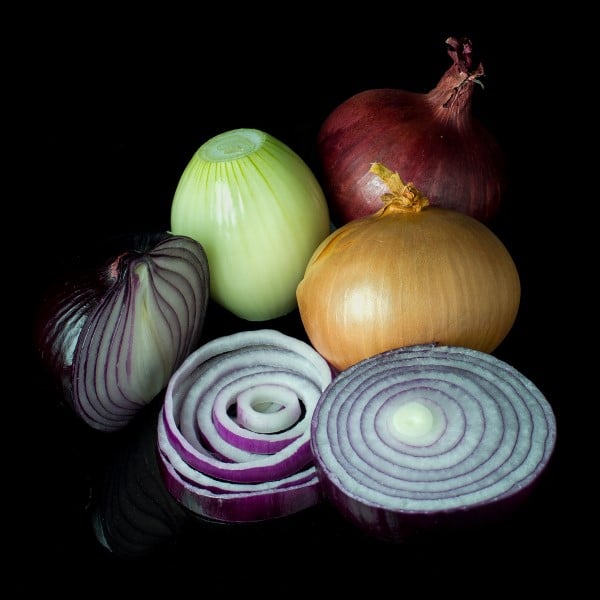
Mosquitoes and other insects are all around you. When the circumstances allow it, they will take their chance and bite you. They will do so to either defend themselves or acquire sustenance. You must know what the insect bite is and how to relieve it. Knowing when to call for emergency medical attention is also vital to prevent the worsening of allergic reactions and infections. Keep your eyes open and mind alert at all times, to battle any type of insect bite. This way, you can enjoy your day, wherever you are.

